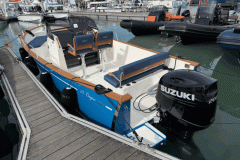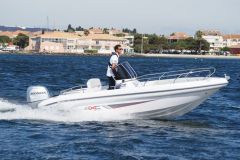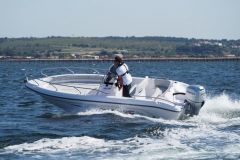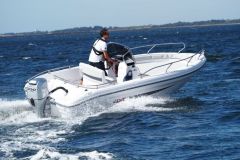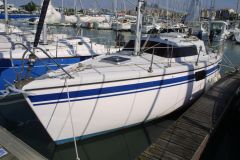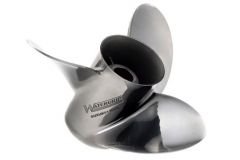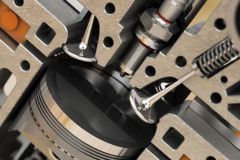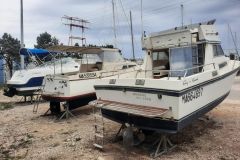Before buying a boat, there's often the question of engine hours. Is a boat with a low hourmeter always the best buy? Here's some food for thought.
What is a horameter?
Unlike cars, boats don't have odometers, but they do have hour or minute meters "horameter" . This meter is used to accurately measure the actual running time of an engine at sea, but also when docked in winter. In addition to its usefulness in determining inspection and maintenance periods, it gives an idea of a boat's value. Of course, it may have been disconnected by a rogue owner, but an inspection of the boat and engine will quickly reveal the subterfuge, as we'll see later.
When reading used boat sales advertisements, the number of engine hours can vary by as much as double for identical boats of the same year of construction. But a boat is designed to sail regularly and keep its engine running. Consequently, the conditions in which it is used and the regularity with which it is maintained must be taken into consideration, just as much as the number of operating hours.
Boats made for sailing
To clarify matters, it's important to know that the average use of a pleasure boat is between 30 and 50 hours a year, sometimes less. So it's under-utilized, whether outboard or inboard. In fact, according to the experts, 80 to 100 hours a year would constitute proper use of a boat. There are no hard and fast rules. A 10-year-old boat with 800 to 1000 hours shouldn't put you off, as long as the owner has an up-to-date engine maintenance log.
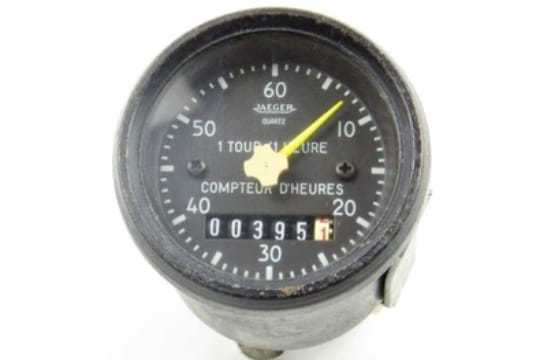
What about the hours/pannes correlation?
Engine problems are often due to corrosion, electrical contacts, fuel quality problems at service stations, or peripheral equipment (alternator, starter motor, various pumps, etc.), but very rarely to a mechanical problem, except in cases of misuse by the owner. Constant use doesn't really damage the engine. On the other hand, long periods of inactivity are not necessarily a guarantee of an engine in good condition. A ten-year-old boat with very few hours on the clock may mean that the engine has been idle for a long time, and probably not maintained.
What kind of sailing has the boat done?
When buying a boat, you need to gather as much information as possible to make up your mind. As you can see, the number of hours is only one element among many. It's essential to ask the previous owner or broker about the conditions in which the boat was used. Cruising speeds can affect engine life. Sailing at cruising speed is the best condition for an engine. Conversely, running an engine at maximum power all the time will put abnormal strain on it.

What maintenance should be checked?
First of all, check the maintenance and repair operations carried out on the engine in the maintenance booklet supplied with the boat. Lack of regular maintenance is a major problem. In fact, some yachtsmen who only use their boat for a few hours a season skip out on maintenance, citing "uselessness" after only a few hours' sailing. Although the hour meter is a benchmark for the major parts replacement periods recommended by manufacturers, most engines should be serviced every season, rather than taking into account the hours of operation, which can thus be spread over several years.
Let's take a simple example. If the service life of the spark plugs is 150 hours and the yachtsman only sails 30 hours per season, they could, according to this reasoning, be changed every 5 years (5 seasons x 30 hours). Is this really advisable?
Other owners carry out engine maintenance themselves or by mechanics without invoices. Even though the work may have been well done, there is no history of professional servicing, and this can pose a problem in certain situations. For example, in the event of engine damage requiring major repairs, your insurer's surveyor will ask for your boat's maintenance invoices. Without these, it will be difficult to prove that the boat, and especially the engine, has been maintained. Maximum obsolescence may be applied. You should also be aware that, in terms of liability, it is the professional mechanic responsible for engine maintenance who is liable. It is the mechanic's duty as an advisor to recommend the work to be carried out, and to mention it on the final invoice, in order to avoid any disappointment or even legal proceedings with his customer in the event of a breakdown at sea.
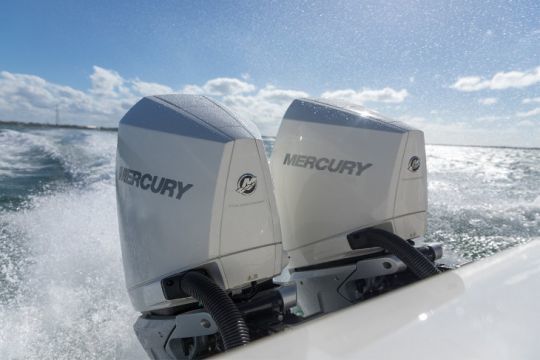
If you want to take your diagnosis a step further, new-generation engines memorize the life of the motor. A mechanic specialized in the make of engine will plug in a suitcase and take stock of it. In any case, the cost of his visit is a good investment. Next, an oil analysis (even if this is subject to discussion depending on the date of the last oil change) with a record of cold and hot compressions by a mechanic will complete your diagnosis. An expert appraisal can also be carried out.
Not-so-essential hours
If maintenance is always up to date and the boat is well cared for, the question of the number of hours is less important than it might seem. Undoubtedly, an up-to-date maintenance booklet backed up by invoices proving maintenance and repair work is a guarantee of the owner's seriousness, and can thus increase a boat's value. In this vast sea of uncertainties, one principle remains: the best condition for a boat is to leave port as often as possible, and to be well maintained at all times!

 /
/ 




